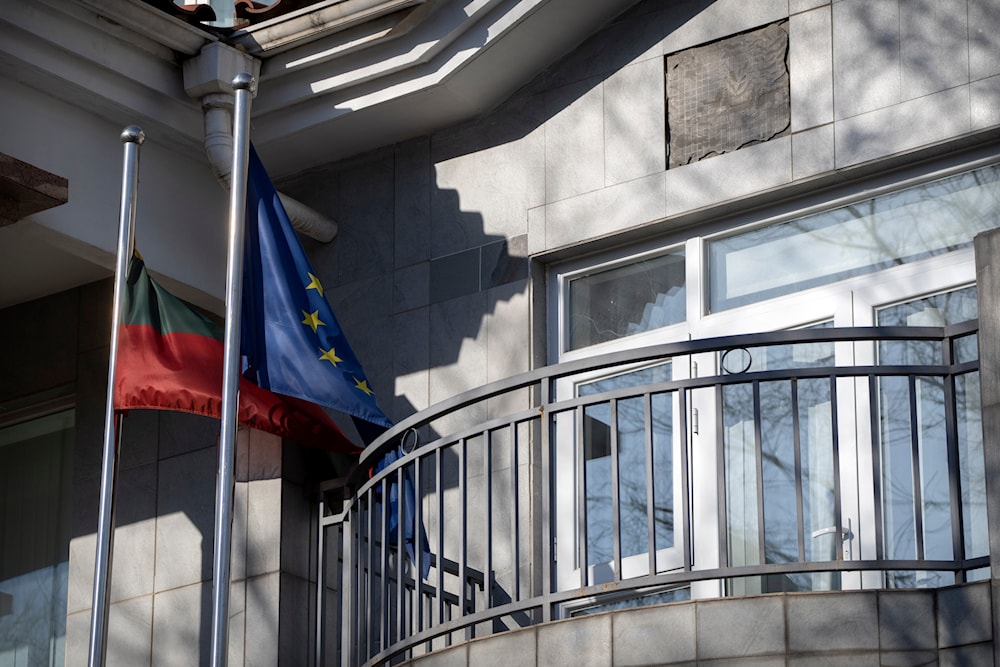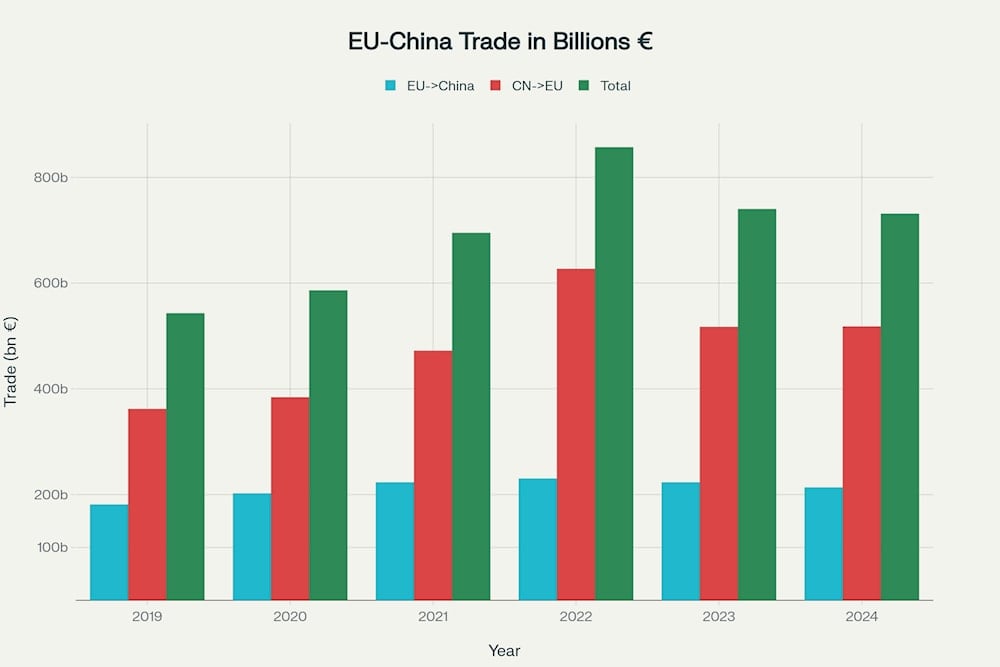China targets 2 Lithuanian banks in retaliation to EU sanctions
China imposes sanctions on two Lithuanian banks in response to the EU’s Russia-related sanctions against Chinese banks.
-

Lithuanian and European Union flags fly outside the Lithuanian Embassy in Beijing on Dec 16, 2021. (AP Photo/Mark Schiefelbein, File)
China has applied sanctions against two Lithuanian financial institutions in response to the European Union's latest sanctions package targeting Chinese banks allegedly linked to Russia. This marks the first direct retaliation by Beijing against specific EU banks, escalating an already strained trade relationship.
On August 13, 2025, the Chinese Ministry of Commerce announced immediate countermeasures against UAB Urbo Bankas and AB Mano Bankas. These measures prohibit any Chinese individuals or organizations from conducting transactions or establishing cooperation with the two Lithuanian banks.
The move comes after the EU's 18th sanctions package against Russia, implemented on August 9, which included Heihe Rural Commercial Bank and Heilongjiang Suifenhe Rural Commercial Bank. These Chinese banks were accused of offering cryptocurrency services that facilitated Russia's evasion of Western sanctions.
China’s Ministry of Commerce called the EU’s actions "groundless" and urged the bloc to correct its "wrongdoings" to avoid further damage to EU-China cooperation.
Lithuanian banks deny any ties to China
Urbo Bankas CEO Marius Arlauskas stated that the bank had no dealings with China, while AB Mano Bankas also clarified it had no active operations in the country.
While the sanctioned Lithuanian banks have minimal financial exposure to China, the move sends a symbolic political message.
The choice of Lithuanian banks is seen as strategic. Lithuania has been at the center of diplomatic tensions with China since 2021, when it allowed Taiwan to open a representative office in Vilnius under the name "Taiwanese Representative Office" instead of "Chinese Taipei." This prompted Beijing to downgrade diplomatic relations and impose multiple economic measures.
Broader EU-China trade tensions
This banking sanctions dispute underscores the deepening rift between the EU and China. In July 2025, European Commission President Ursula von der Leyen stated that relations had reached a "clear inflection point." The EU’s trade deficit with China rose to a record €305.8 billion ($360 billion) in 2024, with total bilateral trade amounting to €731.1 billion. Trade between the two remains highly asymmetric. In 2024, EU exports to China reached €213.3 billion, while imports from China hit €517.8 billion.
China remains the EU’s second-largest trading partner, but mutual distrust is growing. The EU is pushing a "de-risking" strategy to reduce reliance on Chinese supply chains while developing investment screening mechanisms and diversifying trade.
-

China-EU trade in billions of Euro (produced by Al Mayadeen English)
China’s position on the Ukraine war
China has consistently promoted a political solution to the Ukraine conflict while maintaining a "no limits" partnership with Russia, declared in February 2022. The EU and NATO view this relationship as problematic, accusing China of indirectly supporting Russia's war efforts.
NATO has described China as a "decisive enabler" of Russia’s military capabilities, citing Chinese exports of tools, dual-use goods, microelectronics, and geospatial intelligence that could aid Russian forces.
Analysts argue that China’s action was guided by a principle of proportionality, targeting small EU banks equivalent in size to the Chinese institutions affected.

 3 Min Read
3 Min Read










